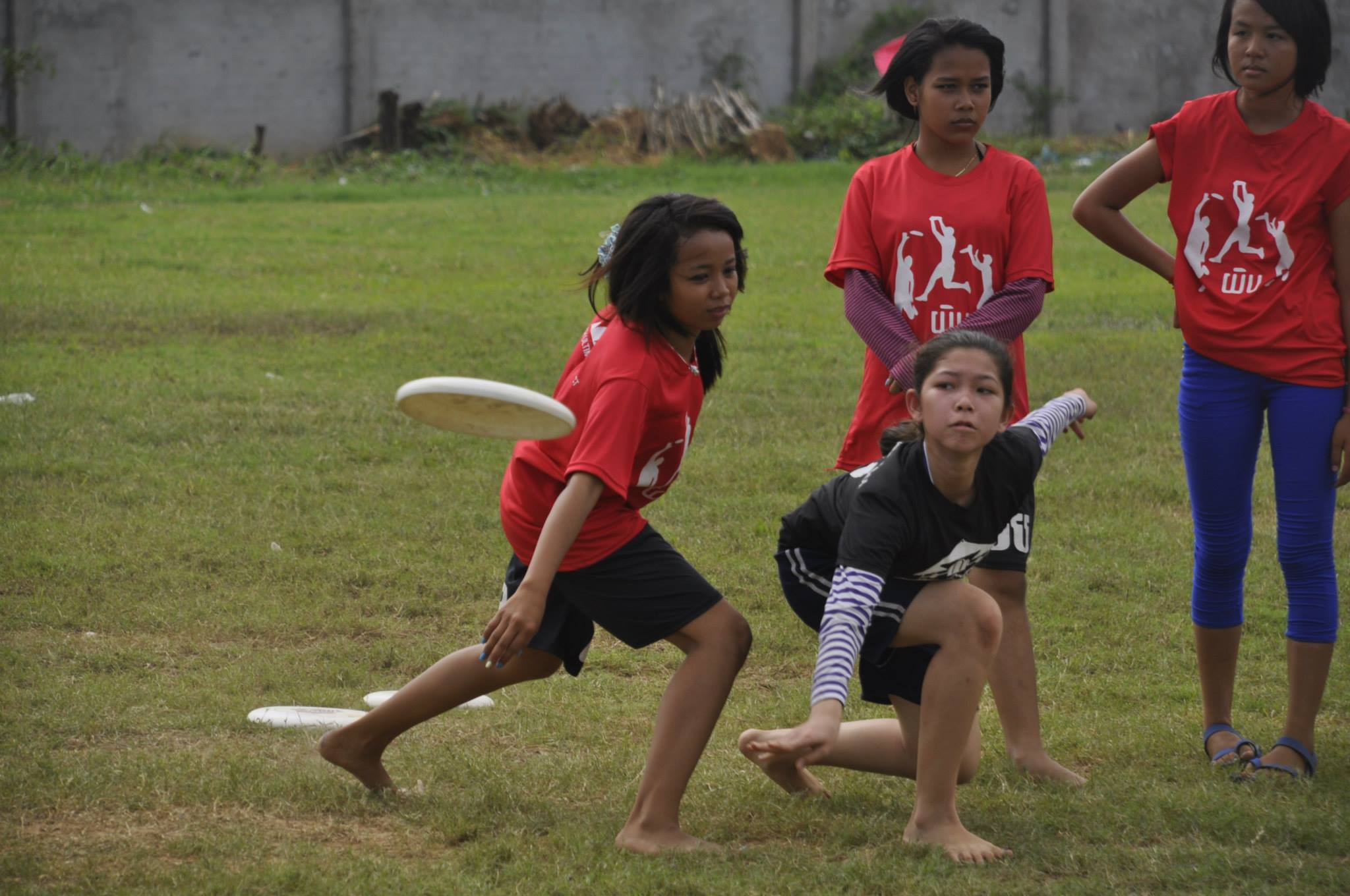During her Luce Year in Phnom Penh, 2013-14 Luce Scholar Claire Duvallet not only furthered her career experience working at Engineering World Health Cambodia, she also discovered a life-long passion for the sport of ultimate frisbee and realized its potential as a means to bring about social change and gender equity.
In this blog post, Duvallet shares her experience building community through this unique sport and witnessing local boys and girls grow and transform as individuals while embracing the spirit of the game.
I spent a year in Cambodia before moving to Boston, which is also when I started playing frisbee more seriously. Part of the reason I became so passionate about frisbee that year is that I saw firsthand frisbee’s power to affect local change, and specifically in the context of gender equity. After returning from Cambodia, I joined MIT’s women’s ultimate frisbee team as one of the few graduate students on the team. Playing and becoming friends with the undergrads solidified my belief in the power of frisbee to drive social change and push gender equity forward.
In undergrad, I had played ultimate during my semester abroad in Australia, but had never been able to find time to fully commit to it back at my home university. When I moved to Cambodia for a gap year before graduate school, I knew I wanted to give the sport a real try. In Phnom Penh, I joined the local frisbee community, playing pick-up twice a week, going to a few tournaments with the local, expat-heavy team, and attending my first ever hat tournaments (including the best hat tournament in the world, the Big Phat Phnom Penh Hat). I played with older expats who would bring their kids to pickup as well as tourists traveling through for just a few days. My middle-aged teammates would consistently not only out-play but also out-party 23-year-old me – this, I decided, was a sport I’d be happy to commit to well into my adult life. I traveled to tournaments around Southeast Asia where I was automatically welcomed into an incredible community that I knew would exist anywhere I went in the world. From these experiences, I saw that frisbee was a fun and personally enriching activity. More important than the pleasures that playing ultimate gave me, I also saw firsthand this sport’s power to transform local communities.
In Phnom Penh, there was a growing group of local Cambodian boys from poor neighborhoods who had joined the expat-dominated ultimate frisbee scene. They had been introduced to the sport through a summer camp run by a Seattle-based nonprofit called the Youth Ultimate Project, and had decided to stick with the sport in between the camps. Throughout the year, I watched them grow from immature, hot-headed players into skilled and thoughtful athletes. Their English skills skyrocketed from their constant exposure to foreigners, and their leadership skills bloomed as we passed on the responsibilities of mentoring the younger players and leading practices.
Sign up for updates
Explore Themes and Ideas































































